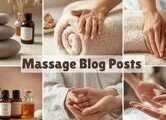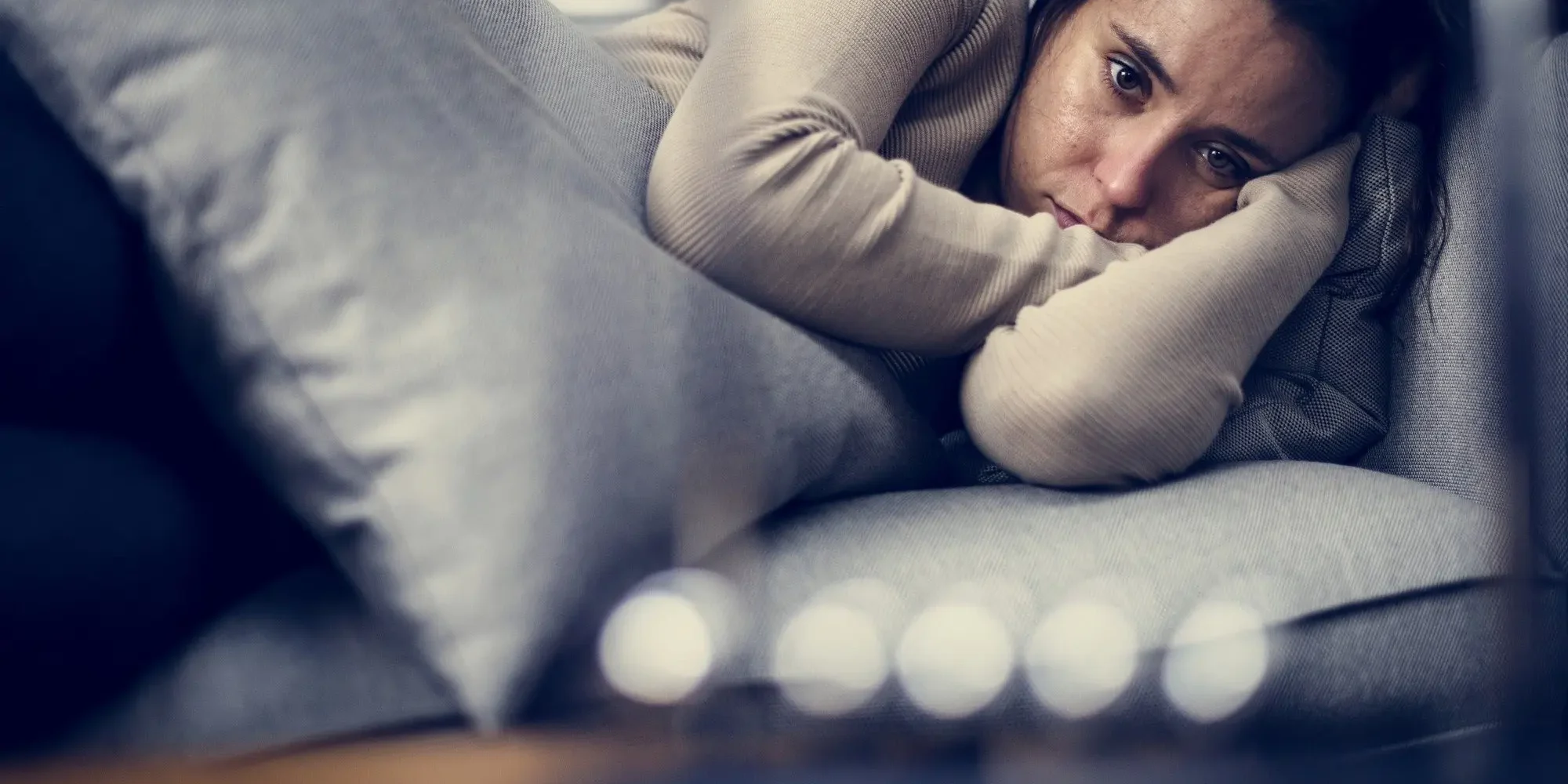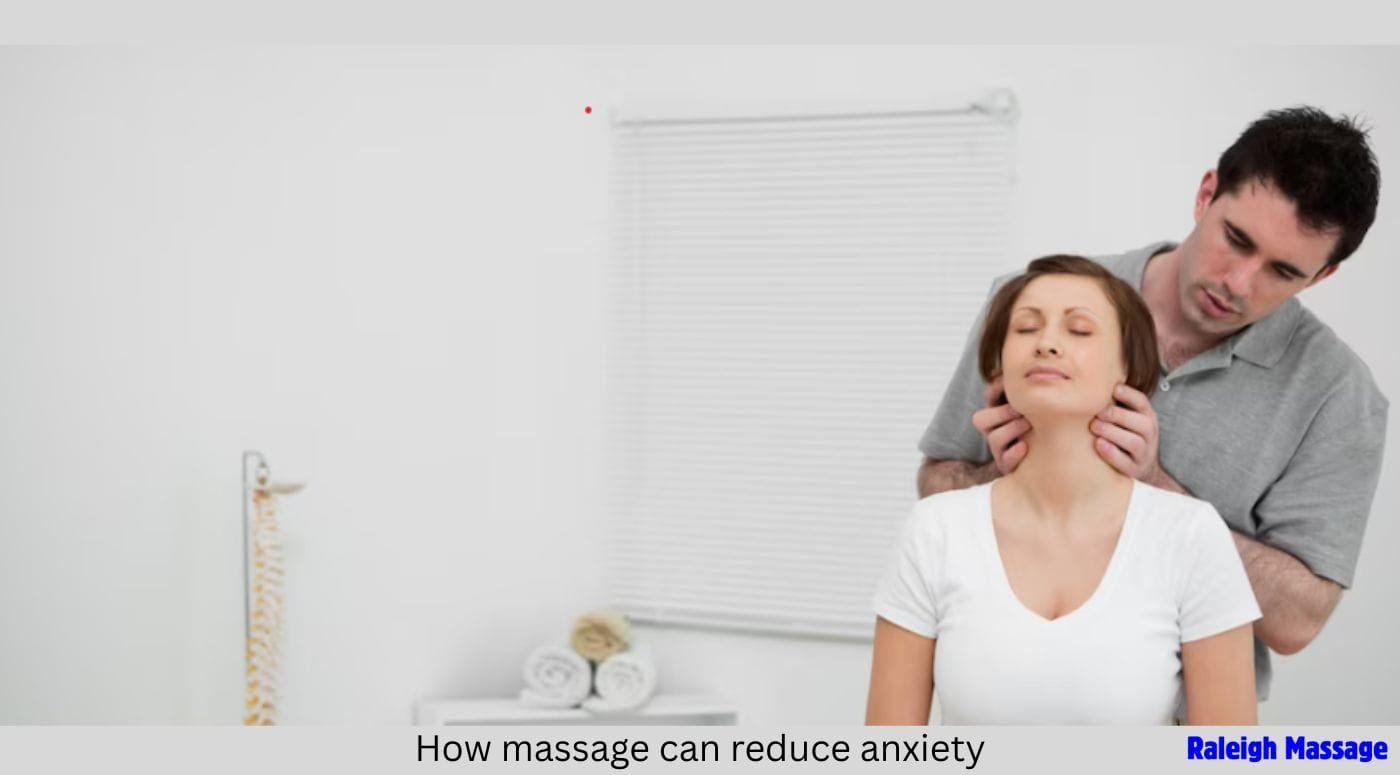Anxiety is something almost everyone experiences at some point in their lives. It can be overwhelming, and finding effective ways to manage it can be a challenge. I know this firsthand. But over the years, I’ve learned about a simple yet powerful way to alleviate anxiety Massage therapy. In this blog, I’m going to walk you through how massage can reduce anxiety and why it’s something you should consider adding to your self-care routine.
What Is Anxiety?
Let’s first quickly define anxiety before delving into how massage helps. Anxiety is the state of nervousness, concern, or unease about something with an unknown result. Stress is a normal response, but if it gets out of control or persistent, it can interfere with your daily life. It then becomes a concern.
Anxiety symptoms might be restlessness,a fast heartbeat, sweaty palms, muscular tension, and trouble sleeping. For myself, these symptoms have had effects. There are times when I feel as though the weight of the world rests on my shoulders and I find it difficult to get off. Massage, then, comes in handy here.
The Connection Between Massage and Anxiety
You might be curious as to how a basic massage might reduce anxiety. Well, let me say—it’s more than just downtime. The main stress hormone the body produces, cortisol, has been shown to be lowered by massage therapy. It also increases endorphin synthesis concurrently, the “feel-good” hormone production. This mix produces a great sense of calm and relaxation that can help to drastically lower anxiety.
I recall the first time I sought relief from anxiety by having a massage. It came following a rather trying week at work. My back hurt, my shoulders were tight, and my head was whirling. I watched the tension release as the massage therapist worked on my muscles. By the end of the session, I was lighter, more at ease, and shockingly, my anxiety had dropped. That was my first encounter with the potency of massage for anxiety.
How Massage Helps to Relieve Anxiety
Massage can help with anxiety in several ways, and I have seen it help others as well as personally. There is this:
- Muscle relaxation
Anxious people often find their muscles tightening. This conflict can lead to discomfort and pain, which aggravates your anxiety only. The therapist works on your muscles during a massage, so relaxing them. This can make you feel more comfortable and offer quick relief.
My body feels lighter and less tense following a massage, I have discovered. My breathing is easier and I feel more grounded. One of the most obvious effects of massage for anxiety is this muscle relaxation.
- Better Blood Flow
Massage increases blood circulation, so supplying more oxygen and nutrients to your tissues and muscles. Your body can heal from tiredness and stress by means of this. For someone who suffers with anxiety, this can be quite significant. The more circulation there is, the less muscle aches and the more well-adjusted one feels.
- Reduce Cortisol Levels
The hormone your body produces in reaction to stress is cortisol. Though short-term survival depends on it, too much cortisol can wreak havoc on your body and cause anxiety. One study has shown that massages lower body cortisol levels. Particularly following a particularly demanding day, this can enable you to feel more balanced and calm.
Personally, I have experienced the results of this drop in cortisol. I discovered that, following a massage, I am more able to control tension without allowing it to overwhelm me.
- Enhanced Endorphins
Natural painkillers generated by your body are endorphins. They also help you to feel happy and relaxed following a good exercise or, in this case, a good massage. Endorphins leave you more calm by helping to offset the consequences of anxiety and stress.
One of the reasons I look forward to my sessions is that I have felt the endorphin surge following a massage. It’s like a natural high that lasts hours, guiding me to face the rest of my day with a calm head.
- Improving mental clarity and focus
Additionally helping you to improve focus and clear your mind is massage therapy. Many times, anxiety results in mental fog that makes thinking difficult. However, your mind is free to concentrate in a relaxed state following a massage. After a massage, I find that I am more psychologically sharp and prepared to face whatever comes my way.
The Role of Touch in Massage Therapy
The significance of touch also plays a part in how massage helps to lower anxiety. The nervous system responds profoundly from human touch. Touch has been shown scientifically to lower heart rate, ease stress, and raise general mood. During a massage, the therapist’s touch sets off oxytocin, the “bonding hormone,” which fosters relaxation and safety.
I can’t count how many times, during a massage, I have experienced the benefits of human touch. Like a sign that everything will be alright, it is consoling and reassuring.
Types of Massage for Anxiety
Not all massages are the same, and some types are better for relieving anxiety than others. Here are a few types of massage that I’ve found to be particularly helpful:
1. Swedish Massage
A Swedish massage is one of the most common types of massage. It involves long, smooth strokes and gentle kneading. It’s incredibly relaxing and can help reduce stress and anxiety.
2. Deep Tissue Massage
If you’re dealing with chronic tension or muscle pain from anxiety, a deep tissue massage might be a good option. This type of massage targets deeper layers of muscle tissue and can help release built-up tension.
3. Aromatherapy Massage
Aromatherapy massage combines the calming effects of massage with the soothing properties of essential oils. Lavender, for example, is known for its ability to reduce anxiety. I’ve found this type of massage to be particularly calming.
How Often Should You Get a Massage for Anxiety?
Your need will determine how often you need your massage. Once a week massages could be something you want if your anxiety is rather severe. If your anxiety is more under control, you may find that once a month or every two weeks a massage will help you to remain balanced and calm.
Getting a massage once a week or every other week has definitely helped me to control my anxiety. It’s a fantastic approach to keep tension under control and preserve a cool, quiet head.
In addition, massage therapy is an effective way to help with anxiety and relieve it. It offers benefits across a spectrum, from relaxing muscles and improving circulation to lowering stress hormones and enhancing mood. If you’re dealing with anxiety, I would highly encourage you to try massage. It has certainly helped me, and I am sure it can help you as well.
I’d recommend taking the time to make self-care a priority, and find a massage therapist you feel comfortable with.” Your mind and body will thank you. YOU MAY ALSO BE INTERESTED IN: If you need a good place to get started, start with Raleigh Massage in Wake Forest locally, where you get professional, therapeutic massage services.
FAQs' for Massage for Anxiety?
1. How often should I get a massage for anxiety?
The frequency of massages depends on how severe your anxiety is. For chronic anxiety, consider getting a massage once a week. For mild anxiety, once or twice a month might be sufficient.
2. Can massage help with sleep problems caused by anxiety?
Yes, massage can help improve sleep. By relaxing your muscles and calming your nervous system, it can reduce anxiety-related sleep disturbances and promote better sleep.
3. Is there a specific type of massage that works best for anxiety?
Swedish massage, deep tissue massage, and aromatherapy massage are all effective for reducing anxiety. The best type depends on your personal preferences and anxiety symptoms.
4. How soon will I feel the effects of massage for anxiety?
Many people feel relaxed and less anxious right after their first massage. However, the full benefits may be felt after a few sessions as your body adjusts to regular massage therapy.
5. Can massage be used alongside other anxiety treatments?
Yes, massage can be a complementary therapy to other anxiety treatments, such as therapy or medication. It can enhance your overall well-being and help manage stress.








